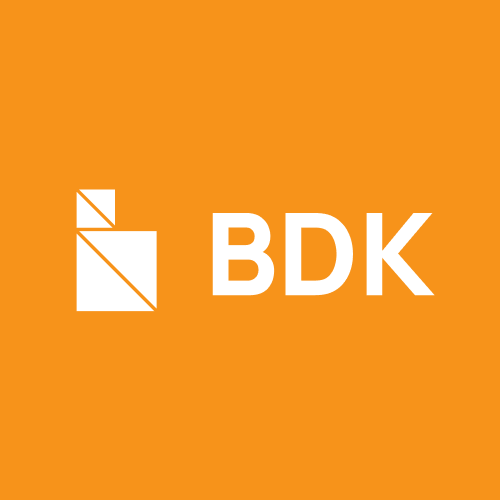rpcwallet example
44758f9483b049acbcd9f8948e29cd6f6add0cc2 Simplify the `rpcwallet` example using the improved keys traits (Alekos Filini) c350064dae43fd9c892bb7dd272b14ce62f9e82d Update changelog changes in `keys` mod (Alekos Filini) 92746440db964b5e50f4017828516b36eb14e765 [keys] Make `GenerateKey<K>` clonable if K is (Alekos Filini) e4eb95fb9cfbae3596deb310984fa18462d1b30c [keys] Implement `DerivableKey<Ctx>` for `(GeneratedKey<Mnemonic, Ctx>, Option<String>)` (Alekos Filini) Pull request description: ### Description I recently looked at the `rpcwallet` example and immediately thought the key generation part was very confusing. I made a few little changes to our traits and now I believe it's much better. I'm copying the next few paragraphs from the first commit in this PR which explains why it's better not to extract the key from the `GeneratedKey` wrapper: > This lets us use a tuple of (generated mnemonic, optional passphrase) as a `DerivableKey` directly, without extracting the inner mnemonic from the `GeneratedKey` wrapper. For BIP39 keys specifically it doesn't make much difference because the mnemonic format doesn't encode the network, but in general this is not the case and having a consistent API will make it harder for people to make mistakes. > To explain why we should not extract the key: some key formats (like BIP32 extended keys) are network-specific, meaning that if somebody tries to use a Testnet key on a Mainnet BDK wallet, it won't work. > However, when we generate a new key we would like to be able to use that key on any network, but we need to set some kind of placeholder for the `network` field in the structure. This is why (or at least one of the reasons why) we wrap the key in the `GeneratedKey` struct: we keep track of the "valid_networks" separately, which means that even if we set our BIP32 xprv to be a "Mainnet" key, once we go try creating a wallet with that key BDK is smart enough to understand that `GeneratedKey`s have their own separate set of valid networks and it will use that set to validate whether the key can be used in the wallet or not. ### Notes to the reviewers I'm adding this to the `0.18` milestone even if the feature freeze is today. I don't think we should wait for this PR to start the release branch, but since it's just a minor addition to our traits I believe we could merge this afterwards to the release branch if we manage to get it reviewed and ready within the next week. Otherwise it'll just wait for `0.19`, it's not a big deal. ### Checklists #### All Submissions: * [x] I've signed all my commits * [x] I followed the [contribution guidelines](https://github.com/bitcoindevkit/bdk/blob/master/CONTRIBUTING.md) * [x] I ran `cargo fmt` and `cargo clippy` before committing #### New Features: * [ ] I've added tests for the new feature * [ ] I've added docs for the new feature * [x] I've updated `CHANGELOG.md` ACKs for top commit: notmandatory: tACK 44758f9483b049acbcd9f8948e29cd6f6add0cc2 Tree-SHA512: 31a8b5a3cd56c7c39688c4804026a8b6cee950c50ea880efcddc150ef523e2ddcc544831bf996a58b5cf3b7bc4a086c1008dc0728604e5134d331c68855c2d5b
BDK

A modern, lightweight, descriptor-based wallet library written in Rust!
Project Homepage | Documentation
About
The bdk library aims to be the core building block for Bitcoin wallets of any kind.
- It uses Miniscript to support descriptors with generalized conditions. This exact same library can be used to build single-sig wallets, multisigs, timelocked contracts and more.
- It supports multiple blockchain backends and databases, allowing developers to choose exactly what's right for their projects.
- It's built to be cross-platform: the core logic works on desktop, mobile, and even WebAssembly.
- It's very easy to extend: developers can implement customized logic for blockchain backends, databases, signers, coin selection, and more, without having to fork and modify this library.
Examples
Sync the balance of a descriptor
use bdk::Wallet;
use bdk::database::MemoryDatabase;
use bdk::blockchain::ElectrumBlockchain;
use bdk::SyncOptions;
use bdk::electrum_client::Client;
fn main() -> Result<(), bdk::Error> {
let blockchain = ElectrumBlockchain::from(Client::new("ssl://electrum.blockstream.info:60002")?);
let wallet = Wallet::new(
"wpkh([c258d2e4/84h/1h/0h]tpubDDYkZojQFQjht8Tm4jsS3iuEmKjTiEGjG6KnuFNKKJb5A6ZUCUZKdvLdSDWofKi4ToRCwb9poe1XdqfUnP4jaJjCB2Zwv11ZLgSbnZSNecE/0/*)",
Some("wpkh([c258d2e4/84h/1h/0h]tpubDDYkZojQFQjht8Tm4jsS3iuEmKjTiEGjG6KnuFNKKJb5A6ZUCUZKdvLdSDWofKi4ToRCwb9poe1XdqfUnP4jaJjCB2Zwv11ZLgSbnZSNecE/1/*)"),
bitcoin::Network::Testnet,
MemoryDatabase::default(),
)?;
wallet.sync(&blockchain, SyncOptions::default())?;
println!("Descriptor balance: {} SAT", wallet.get_balance()?);
Ok(())
}
Generate a few addresses
use bdk::{Wallet, database::MemoryDatabase};
use bdk::wallet::AddressIndex::New;
fn main() -> Result<(), bdk::Error> {
let wallet = Wallet::new(
"wpkh([c258d2e4/84h/1h/0h]tpubDDYkZojQFQjht8Tm4jsS3iuEmKjTiEGjG6KnuFNKKJb5A6ZUCUZKdvLdSDWofKi4ToRCwb9poe1XdqfUnP4jaJjCB2Zwv11ZLgSbnZSNecE/0/*)",
Some("wpkh([c258d2e4/84h/1h/0h]tpubDDYkZojQFQjht8Tm4jsS3iuEmKjTiEGjG6KnuFNKKJb5A6ZUCUZKdvLdSDWofKi4ToRCwb9poe1XdqfUnP4jaJjCB2Zwv11ZLgSbnZSNecE/1/*)"),
bitcoin::Network::Testnet,
MemoryDatabase::default(),
)?;
println!("Address #0: {}", wallet.get_address(New)?);
println!("Address #1: {}", wallet.get_address(New)?);
println!("Address #2: {}", wallet.get_address(New)?);
Ok(())
}
Create a transaction
use bdk::{FeeRate, Wallet, SyncOptions};
use bdk::database::MemoryDatabase;
use bdk::blockchain::ElectrumBlockchain;
use bdk::electrum_client::Client;
use bdk::wallet::AddressIndex::New;
use bitcoin::consensus::serialize;
fn main() -> Result<(), bdk::Error> {
let blockchain = ElectrumBlockchain::from(Client::new("ssl://electrum.blockstream.info:60002")?);
let wallet = Wallet::new(
"wpkh([c258d2e4/84h/1h/0h]tpubDDYkZojQFQjht8Tm4jsS3iuEmKjTiEGjG6KnuFNKKJb5A6ZUCUZKdvLdSDWofKi4ToRCwb9poe1XdqfUnP4jaJjCB2Zwv11ZLgSbnZSNecE/0/*)",
Some("wpkh([c258d2e4/84h/1h/0h]tpubDDYkZojQFQjht8Tm4jsS3iuEmKjTiEGjG6KnuFNKKJb5A6ZUCUZKdvLdSDWofKi4ToRCwb9poe1XdqfUnP4jaJjCB2Zwv11ZLgSbnZSNecE/1/*)"),
bitcoin::Network::Testnet,
MemoryDatabase::default(),
)?;
wallet.sync(&blockchain, SyncOptions::default())?;
let send_to = wallet.get_address(New)?;
let (psbt, details) = {
let mut builder = wallet.build_tx();
builder
.add_recipient(send_to.script_pubkey(), 50_000)
.enable_rbf()
.do_not_spend_change()
.fee_rate(FeeRate::from_sat_per_vb(5.0));
builder.finish()?
};
println!("Transaction details: {:#?}", details);
println!("Unsigned PSBT: {}", base64::encode(&serialize(&psbt)));
Ok(())
}
Sign a transaction
use bdk::{Wallet, SignOptions, database::MemoryDatabase};
use bitcoin::consensus::deserialize;
fn main() -> Result<(), bdk::Error> {
let wallet = Wallet::new(
"wpkh([c258d2e4/84h/1h/0h]tprv8griRPhA7342zfRyB6CqeKF8CJDXYu5pgnj1cjL1u2ngKcJha5jjTRimG82ABzJQ4MQe71CV54xfn25BbhCNfEGGJZnxvCDQCd6JkbvxW6h/0/*)",
Some("wpkh([c258d2e4/84h/1h/0h]tprv8griRPhA7342zfRyB6CqeKF8CJDXYu5pgnj1cjL1u2ngKcJha5jjTRimG82ABzJQ4MQe71CV54xfn25BbhCNfEGGJZnxvCDQCd6JkbvxW6h/1/*)"),
bitcoin::Network::Testnet,
MemoryDatabase::default(),
)?;
let psbt = "...";
let mut psbt = deserialize(&base64::decode(psbt).unwrap())?;
let finalized = wallet.sign(&mut psbt, SignOptions::default())?;
Ok(())
}
Testing
Unit testing
cargo test
Integration testing
Integration testing require testing features, for example:
cargo test --features test-electrum
The other options are test-esplora or test-rpc.
Note that electrs and bitcoind binaries are automatically downloaded (on mac and linux), to specify you already have installed binaries you must use --no-default-features and provide BITCOIND_EXE and ELECTRS_EXE as environment variables.
License
Licensed under either of
- Apache License, Version 2.0 (LICENSE-APACHE or http://www.apache.org/licenses/LICENSE-2.0)
- MIT license (LICENSE-MIT or http://opensource.org/licenses/MIT)
at your option.
Contribution
Unless you explicitly state otherwise, any contribution intentionally submitted for inclusion in the work by you, as defined in the Apache-2.0 license, shall be dual licensed as above, without any additional terms or conditions.




